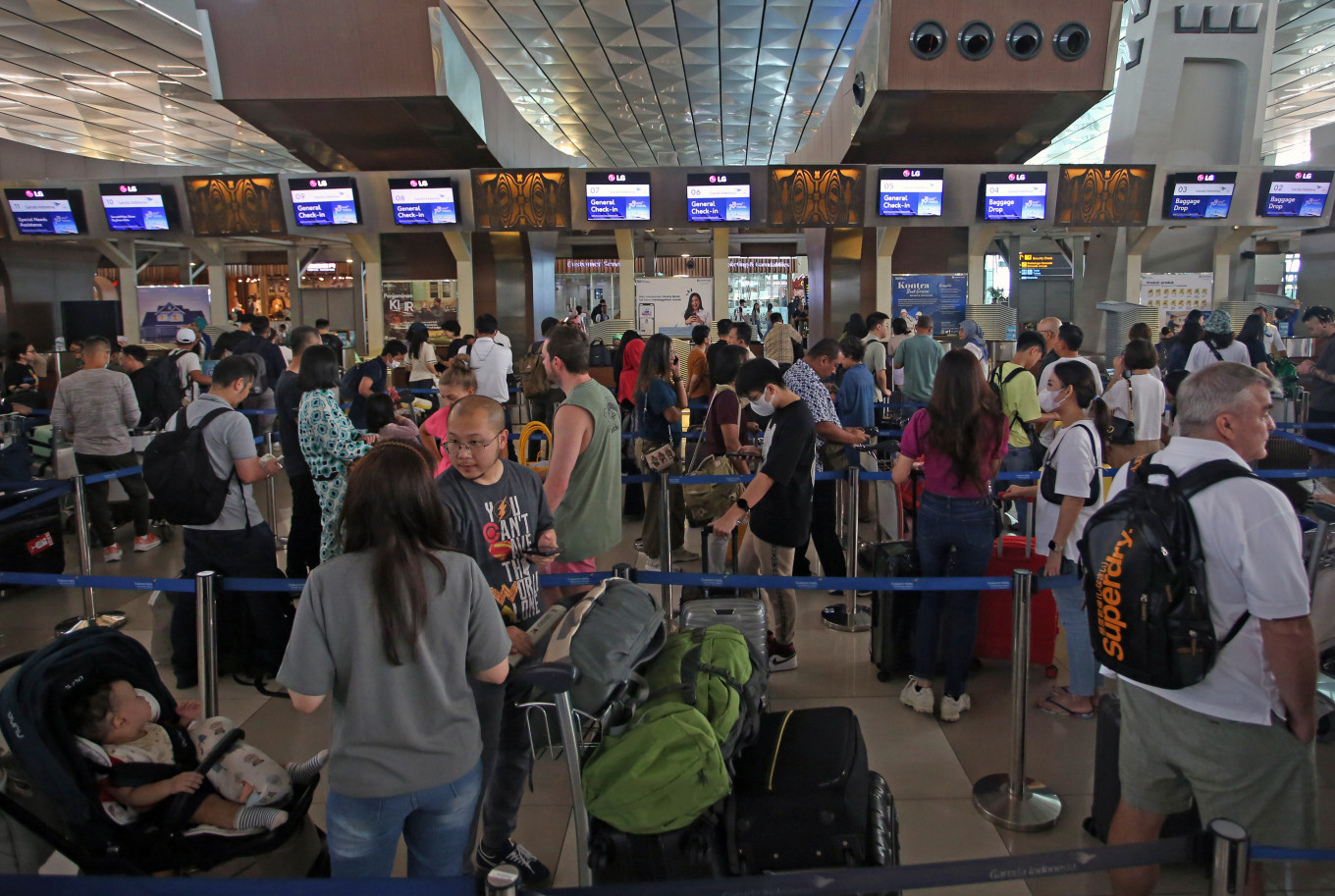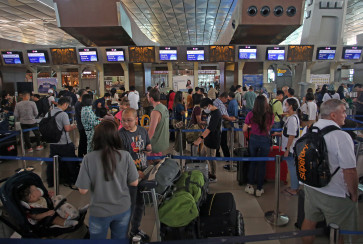Popular Reads
Top Results
Can't find what you're looking for?
View all search resultsPopular Reads
Top Results
Can't find what you're looking for?
View all search resultsCarry-on import restrictions and the public outcry
The proliferation of casual courier services, widely known as “jasa titip/jastip”, has emerged as a prominent business model in contemporary Indonesia. This trend facilitates the acquisition of imported goods through international travelers acting as intermediaries.
Change text size
Gift Premium Articles
to Anyone
T
he recent imposition of carry-on import restrictions by the Indonesian government has sparked widespread public discontent. Many people impacted by the regulation assert that the enforcement of the regulation has been characterized by arbitrary and inequitable practices.
Complaints range from haphazard scrutiny during luggage inspections conducted by airport customs officers to meticulous examinations of carry-on items, including personal belongings such as wallets and worn attire. Furthermore, allegations have been made regarding the imposition of customs duties on goods exempt from taxation and the confiscation of valuable food items. Evidently, the changes have caused a shock among Indonesians accustomed to the historically lenient policies and regulations pertaining to this domain.
Indeed, incoming goods to Indonesia through international travelers, both food and non-food, have been poorly monitored. The lax regulatory environment has facilitated the surreptitious entry of luxury goods by individuals who disregard legal statutes and exhibit limited awareness of their obligations as citizens. Concurrently, foreign food products lacking adequate health and safety certifications have permeated the market with relative ease. Particularly concerning food items, Indonesia lags considerably behind nations such as Taiwan, Australia and New Zealand, renowned for their stringent regulations governing imported foods.
The Trade Ministry Regulation No. 36/2023 delineates specific limitations on items allowable for international passengers. It specifies that every international traveler is permitted a maximum allowance of two pairs of footwear, two bags, five textile products, five units of electronics not exceeding US$1,500 FOB in value, two mobile phones and five kilograms of food items designated for personal consumption. First, let us look at the parties affected the most by the restrictions.
The proliferation of casual courier services, widely known as jasa titip/jastip (courier), has emerged as a prominent business model in contemporary Indonesia. This trend facilitates the acquisition of imported goods through international travelers acting as intermediaries. While this practice holds potential benefits, including streamlined access to foreign products, enhanced consumer welfare and economic advantages for the couriers, its unchecked expansion raises significant concerns.
Notably, many couriers often go as far as exceeding flight carry-on limitations by a large margin, thereby compromising aviation safety standards. Additionally, many of these operators engage in tax evasion practices, attracting scrutiny from customs authorities. Thus, while these services offer certain advantages, their unchecked proliferation presents multifaceted challenges that necessitate careful consideration and regulation. At the same time, given the benefits they offer, the government might want to accommodate rather than forcibly try to stop them.
Indonesian society is distinguished by its deeply ingrained values of kinship and social cohesion, which are integral components of its cultural fabric and collective identity. A longstanding tradition within this cultural milieu is the practice of presenting gifts, known as oleh-oleh, upon returning from a journey. This custom serves as both a gesture to express appreciation and a means of nurturing and preserving familial and social bonds.



















